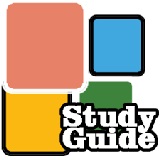|
|
| |
|
|
| |
|
Home -
Study - Avoid Ineffective Study Methods |
|
| Avoid Ineffective Study Methods |
|
| |
 Avoid
Ineffective Study Methods Avoid
Ineffective Study Methods
The lesson includes an audio program explaining this
topic, the script for the audio program, a words in this story section,
and other important information. |
Audio Program
Listen to the audio program explaining this topic. Then read the following written information. |
|
|
Avoid Ineffective Study Methods |
Imagine you have a test in school. It could be for a class in history or
mathematics. Even worse, you could have an English test. How should you
prepare for this terrible event? What can you do before the big day to help
you do better?
Should you reread your history or math books? What about underlining
important words or sentences?
If you are like many students, you probably use both rereading and
underlining. But are these truly the best methods?
Today, on our Education Report, we will explore effective and ineffective
ways to study for tests. You might learn that some study habits you used in
the past might not be the best methods.
Are rereading and highlighting effective?
Rereading and highlighting are common strategies that you will see in
schools around the world.
Students look at information they have already read in an effort to remember
what is important.
Students often combine rereading with highlighting. They underline important
information in what they read with a writing instrument such as a marker.
American Mary Pyc is a cognitive scientist. She studies the human mind and
its processes.
Pyc says that both rereading and highlighting are ineffective study tools.
While better than not studying at all, she believes they are not as useful
as other habits.
"For example, with rereading, it's maybe not as effective because you are
not trying to actively retrieve the information. You are not seeing "what do
I actually know about what I read?" With rereading what is going to happen
is that it is going to feel like you already know the information because
you've already read it. So, you have this sense of fluency that is leading
you to think "Ok, yes, I know the information."
The problem with highlighting, Pyc says, is that students have a false sense
of understanding - similar to when they reread information. Also, there is a
second problem that comes with highlighting.
"Students aren't always aware of what the most important information is. So
it's possible that they are maybe highlighting details that aren't as
important as the higher level concepts."
What can you do?
So what should you do if rereading and highlighting are not the best ways to
study for a test?
One idea is to test yourself. We have discussed self-testing strategies in
other education stories. Simple flashcards and practice exams can help when
you want to make sure that you have learned something.
Another strategy is what education experts have called “spaced practice.”
This means to practice remembering the new information over time, instead of
doing everything all at once. We will discuss spaced practice in a future
Education Tips story.
Regardless of which strategy you chose, you should know that effective
learning takes time and it takes effort.
The next time you have a test coming, try to plan for the big day so that
you can give yourself time to engage in different study habits. And
remember, rereading and highlighting are better than not studying at all,
but there are better methods out there!
I'm John Russell.
John Russell wrote this story for Learning English. George Grow was the
editor.
Write about this in the Comments Section below. |
|
|
Words in This Story |
-
ineffective – adj.
not producing or having the effect you want; not
effective
- engage
– v. to get and keep;
to ask someone to perform a service
-
regardless – adv.
without being stopped by trouble, difficulty
- flashcard
– n. one of a set of
cards carrying information, such as words, numbers
or other information
- practice
– v. to perform or work
at repeatedly so you become better at something
- highlight
– v. to mark something
in color for detail
- strategy
– n. a careful plan or
method
- habit
– n. a way of doing
something; a custom
|
|
|
|
|
|
|
|
|
|
|
|
|
|
 Hey Students, Hey Students,
Use this dictionary and reference to look up any words you do not
understand in Fun Easy English.
Note: search opens in a new tab. |
|
|
|
|
|
Search Fun Easy English |
|
|
|
|
|
|
|
|
|
|
|
|
|
|
|
About
Contact
Copyright
Resources
Site Map |